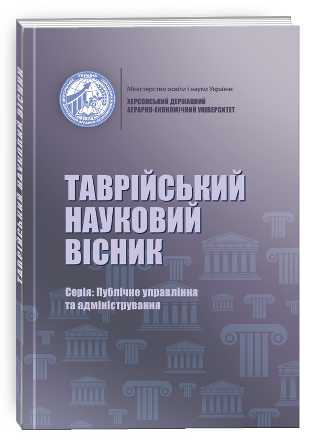ACTORS OF HYBRID THREATS: SYMBIOTICS AND DETERMINATION OF INDIVIDUAL DETERMINANTS
DOI:
https://doi.org/10.32782/tnv-pub.2023.3.10Keywords:
management, hybrid threats, counteraction and prevention, innovative development, countermeasures against threats, prevention of threats, hybrid threats in managementAbstract
The article comprehensively researches and highlights the symbiosis and definition of individual determinants of hybrid threat actors. The author concludes that advances in social media and cyber tools have expanded the possibilities of influencing and manipulating target audiences, and they have clearly been used by state actors in hybrid campaigns. To some extent, this also applies to organizations such as the Islamic State, which are driven by radical, anti-democratic agendas to punish “infidels” and “heretical lifestyles” in the West, and promote their agendas among Western countries. But the ability to carry out such actions to harm Western societies has so far been limited, with the exception of terrorist attacks by supporters inspired by the propaganda and narratives spread by such organizations. However, the activities of radical followers of conservative Salafi/ Jihadist ideology can serve as an example of a clear and growing challenge to the hybrid nature. Attention is focused on the fact that the international security environment is clearly changing and developing, and hybrid threats are closely related to this, because security itself as a concept is not very clearly defined and is also constantly evolving. All of this suggests that states’ exploitation of non-state actors embedded in a target state or target audience as a force multiplier is likely to be an integral and growing part of the manifestation of hybrid threats in the future. However, when malicious activity occurs in a coordinated and systematic manner, it is very likely that non-state actors will almost always be involved, and the initial ability to understand whether this activity is connected to covert state direction and support will be very limited. Therefore, from various perspectives, not least the political one, knowing who is the initiator of malicious events will be extremely important in determining the response and how to counter hybrid threats in the future. For this reason, it is imperative for academics and researchers not only to focus on current events related to the activities of states in the field of hybrid threats, but also to achieve a better understanding of the diversity of hybrid threats in order to be able to counter the constant manifestations of future challenges to national and international security and limit their influence.
References
Arreguín-Toft, Ivan. (2001) “How the Weak Win Wars: A Theory of Asymmetric Conflict.” International Security, 26(1): 93–128. https://doi.org/10.1162/0162288017532128 68
Babbage, Ross. (2019) “Stealing a March: Chinese Hybrid Warfare in the Indo-Pacific: Issues and Options for Allied Defense Planners Volume II : Case Studies.” Center for Strategic and Budgetary Assessments II: 1–51. https://csbaonline.org/uploads/documents/Stealing_a_March_Annex_Final.pdf%0A25
Baldwin, David A. (1985) Economic Statecraft. Princeton: Princeton University Press.
Cullen, Patrick J, and Erik Reichborn-Kjennerud. (2017) “MCDC Countering Hybrid Warfare Project: Understanding Hybrid Warfare”.
Bartosh, Aleksandr. (2013) “Purpose and Mechanisms of the Controlled Chaos Model”. Nezavisimaya Gazeta, 2013. https://nvo.ng.ru/concepts/2013-09-27/6_chaos.html
Berdal, Mats. (2011) “The ‘New Wars’’ Thesis Revisited’”. In The Changing Character of War. Oxford : Oxford University Press. https://doi.org/10.1093/acprof:osobl/97801 99596737.003.0007
Blackwill, R D, and J M Harris. (2016) “The Lost Art of Economic Statecraft.” Foreign Affairs 95(2): 99–110.
Bunker, Robert. (2013) Mexican Cartel Essays and Notes: Strategic, Operational, and Tactical. A Small Wars Journal-El Centro Anthology. iUniverse.com.
C4ADS. (2019) Above Us Only Stars: Exposing GPS Spoofing in Russia and Syria. C4ADS innovation for peace.
Chen, Jidong, and Yiqing Xu. (2017) “Information Manipulation and Reform in Authoritarian Regimes*”. Political Science Research and Methods 5 (1):163–78. https://doi.org/10.1017/psrm.2015.21







